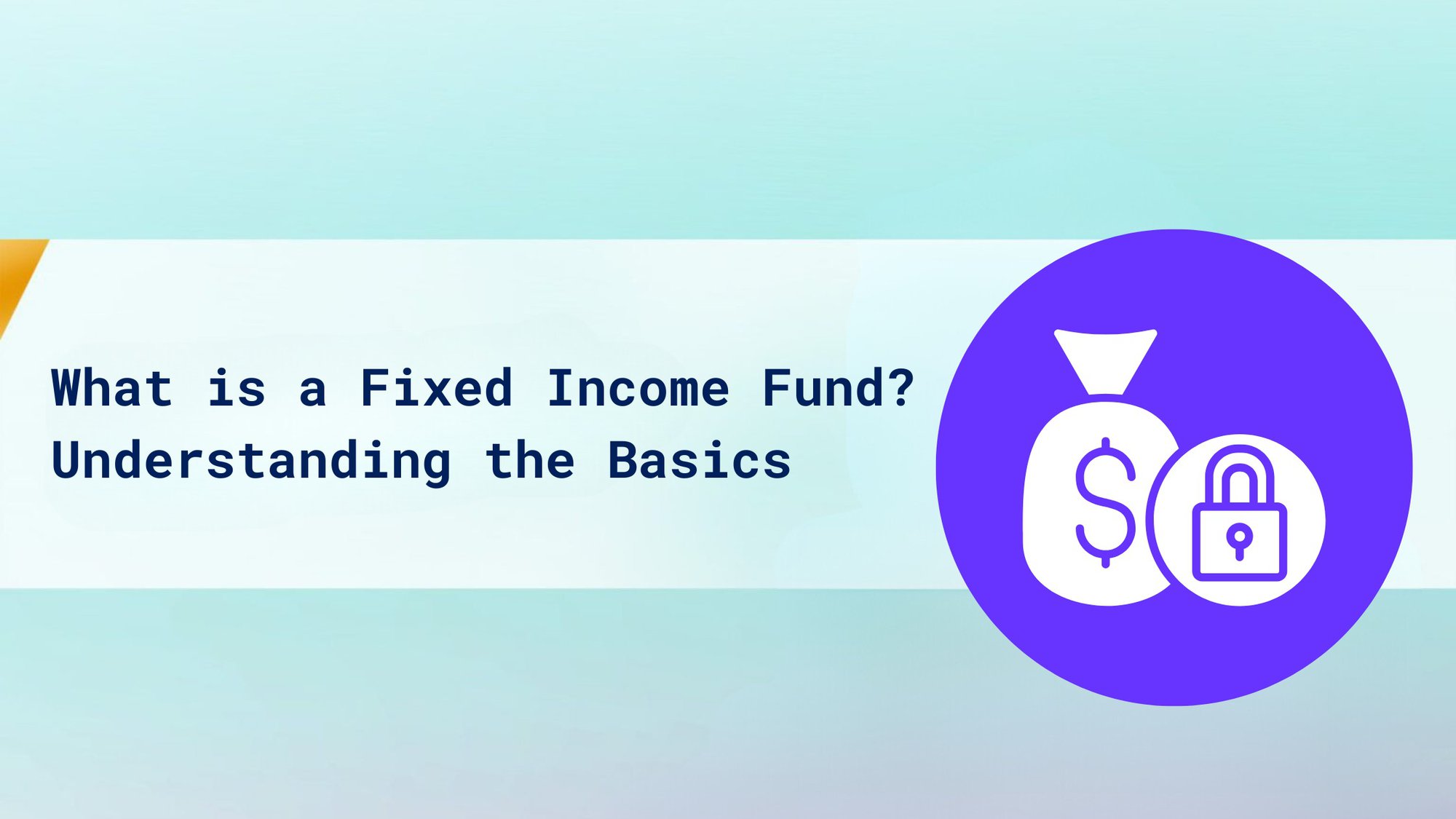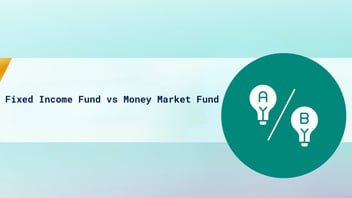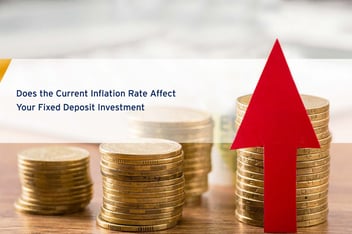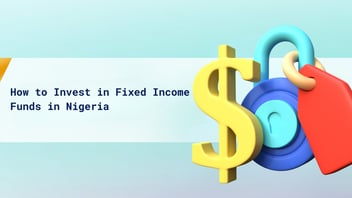
What is a Fixed Income Fund? Understanding the Basics
Author Taiwo Temitope-Adesope
Fixed-income funds are investment vehicles that allow investors to earn a steady income stream over a set period. They are considered one of the safest investment options, as they provide a predictable return on investment. Fixed income funds are typically made up of bonds, which are issued by governments, companies, and other entities.
Fixed-income funds are a popular choice for investors who are looking for a steady stream of income. This is because they pay out regular interest payments to their investors. They also provide a hedge against volatility in the stock market. This makes them a good option for investors who are looking to diversify their portfolios.
Fixed-income funds come in many different forms, including mutual funds, exchange-traded funds (ETFs), and closed-end funds. For Nigerian investors, fixed-income funds can be an attractive investment option due to their stability and predictability. They can be particularly useful for those who are looking to generate a regular income stream. This includes retirees or those who are nearing retirement age. However, it is important to keep in mind that fixed-income funds are not without risk. Investors should carefully consider their investment objectives and risk tolerance before investing.
Definition of Fixed Income Fund
Fixed-income funds are investment vehicles that are designed to generate returns by investing in fixed-income securities. This includes securities such as bonds, treasury bills, and other debt instruments. The primary objective of fixed-income funds is to provide investors with a steady stream of income while preserving capital.
In Nigeria, fixed-income funds are becoming increasingly popular among investors due to their low-risk nature and potential for generating stable returns. These funds are managed by professional fund managers who invest in fixed-income securities on behalf of investors.
Fixed-income funds in Nigeria are regulated by the Securities and Exchange Commission (SEC). They are subject to strict investment guidelines. These guidelines ensure that the funds are invested in high-quality, low-risk securities and that the fund managers adhere to strict risk management protocols.
Investors in fixed-income funds in Nigeria can choose from a range of options. These include open-ended funds, close-ended funds, and exchange-traded funds (ETFs). Open-ended funds are the most common type of fixed-income fund. This is because they allow investors to buy and sell units of the fund at any time. On the other hand, close-ended funds have a fixed number of units and are traded on the stock exchange.
Overall, fixed-income funds in Nigeria are an attractive investment option for investors looking for a low-risk, stable source of income. They provide a reliable way to earn returns on investment while preserving capital. This makes them an ideal investment option for risk-averse investors.
Types of Fixed Income Funds in Nigeria
Fixed-income funds are mutual funds that invest in fixed-income securities like bonds, treasury bills, and money market instruments. These funds are designed to provide investors with a steady stream of income while preserving their capital. In Nigeria, there are different types of fixed-income funds, each with its unique investment objective.
Government Bond Funds
Government bond funds are fixed-income funds that invest in bonds issued by the federal or state government. These bonds are considered to be low-risk investments, as they are backed by the full faith and credit of the government. Government bond funds are suitable for investors who are looking for a low-risk investment that provides a steady stream of income.
Corporate Bond Funds
Corporate bond funds are fixed-income funds that invest in bonds issued by corporations. These bonds are considered to be riskier than government bonds, as they are not backed by the government. However, corporate bond funds offer higher yields than government bond funds, making them suitable for investors who are willing to take on more risk in exchange for higher returns.
Municipal Bond Funds
Municipal bond funds are fixed income funds that invest in bonds issued by local governments, such as cities and towns. These bonds are considered to be low-risk investments, as they are backed by the full faith and credit of the local government. Municipal bond funds are suitable for investors who are looking for a low-risk investment that provides a steady stream of income and are interested in supporting local government projects.
High-Yield Bond Funds
High-yield bond funds are fixed-income funds that invest in bonds that offer higher yields than investment-grade bonds. These bonds are considered to be riskier than investment-grade bonds, as they are issued by companies with lower credit ratings. High-yield bond funds are suitable for investors who are willing to take on more risk in exchange for higher returns.
In conclusion, fixed-income funds are a great way for investors to earn a steady stream of income while preserving their capital. There are different types of fixed-income funds in Nigeria, each with its unique investment objective. Investors should carefully consider their investment objectives and risk tolerance before investing in any fixed-income fund.
Benefits and Risks
Fixed-income funds offer several benefits and risks that investors in Nigeria should consider before investing. Here are some of the key benefits and risks to keep in mind:
Stable Returns
One of the main benefits of fixed-income funds is that they offer stable returns. These funds invest in bonds and other debt securities that pay a fixed rate of interest. This means that investors can expect a regular income stream from their investments. In Nigeria, where the economy can be volatile, fixed-income funds can provide a reliable source of income for investors.
Diversification
Fixed-income funds can also provide diversification benefits. These funds invest in a variety of debt securities, including government bonds, corporate bonds, and municipal bonds. By investing in a mix of these securities, fixed-income funds can help reduce the risk of a single security or issuer negatively impacting the fund's performance. This can be especially important for investors in Nigeria, where the economy can be unpredictable.
Interest Rate Risk
One of the main risks associated with fixed-income funds is interest rate risk. When interest rates rise, bond prices typically fall. This can negatively impact the performance of fixed-income funds. In Nigeria, where interest rates can be volatile, investors should be aware of this risk when considering fixed-income funds.
Credit Risk
Another risk associated with fixed-income funds is credit risk. This is the risk that the issuer of a bond will default on its payments. In Nigeria, where the creditworthiness of some issuers can be uncertain, fixed-income investors should carefully consider the credit risk associated with the securities held by the fund.
Overall, fixed-income funds can offer stable returns and diversification benefits to investors in Nigeria. However, investors should also be aware of the risks associated with these funds, including interest rate risk and credit risk. By carefully considering these factors, investors can make informed decisions about whether fixed-income funds are right for their investment portfolios.
Investing in Fixed Income Funds
Fixed income funds are a popular investment vehicle in Nigeria, providing investors with a predictable source of income and a lower level of risk compared to other investments. In this section, we will discuss some of the investment strategies that investors can use when investing in fixed income funds, as well as the criteria they can use to select the right fund for their needs. Finally, we will also cover some of the performance evaluation metrics that investors can use to monitor their fixed income fund investments.
Investment Strategies
There are several investment strategies that investors can use when investing in fixed income funds. One popular strategy is to invest in funds that focus on government-issued bonds, which are generally considered to be the safest fixed income securities. Another strategy is to invest in funds that focus on corporate bonds, which offer higher yields but also carry higher levels of risk. Finally, investors can also consider investing in funds that focus on a mix of different types of fixed income securities, such as bonds and CDs.
Fund Selection Criteria
When selecting a fixed income fund to invest in, investors should consider several criteria. One important factor to consider is the fund's credit rating, which reflects the creditworthiness of the underlying securities in the fund's portfolio. Another important factor is the fund's expense ratio, which reflects the fees and expenses associated with managing the fund. Finally, investors should also consider the fund's historical performance, as well as the experience and track record of the fund's management team.
Performance Evaluation
Investors should regularly evaluate the performance of their fixed income fund investments. One important metric to consider is the fund's yield, which reflects the income generated by the fund's underlying securities. Another important metric is the fund's total return, which reflects the fund's yield plus any changes in the value of the underlying securities. Finally, investors should also consider the fund's risk-adjusted return, which reflects the fund's return relative to its level of risk.
Overall, fixed-income funds can be a valuable addition to an investor's portfolio, providing a predictable source of income and a lower level of risk compared to other investments. By using the investment strategies, fund selection criteria, and performance evaluation metrics discussed in this section, investors can make informed decisions when investing in fixed income funds.
Looking to invest in a fixed income fund and you don’t know where to start? Start by comparing on nairaCompare!
With nairaCompare, you can:
- Compare fixed-income funds side-by-side: Find the best rates, returns, and maturities to match your needs.
- Filter and sort based on your preferences: You can filter based on your investment amount and risk level.
- Apply directly for your chosen fund: Skip the hassle and save valuable time.
Don't settle for the first fund you find. Compare and invest smarter with nairaCompare!
Conclusion
Fixed-income funds are a great investment option for Nigerian investors who are looking for a steady stream of income. These funds invest in high-quality fixed-income assets such as government loans, treasury bills, and money markets. They offer investors a fixed rate of return based on the payment terms and duration, which can be monthly, quarterly, or yearly.
https://app.nairacompare.ng/investments/fixed-income-fund
One of the benefits of fixed-income funds is that they are generally less volatile than other types of investments such as stocks. This means that investors can expect a more stable return on their investment. Additionally, fixed-income funds can be a good way to diversify an investment portfolio.
When considering investing in fixed-income funds, it is important to do your research and choose a fund that aligns with your investment goals and risk tolerance. Some funds may have higher fees or lower returns than others, so it is important to compare your options before making a decision.
Overall, fixed-income funds can be a valuable addition to a Nigerian investor's portfolio. They offer a reliable source of income and can help to diversify an investment portfolio. By doing your research and choosing the right fund, you can enjoy the benefits of fixed-income investing.
About Author

Taiwo Temitope-Adesope
Taiwo is a passionate storyteller and strategist dedicated to empowering women and crafting compelling narratives. A First-Class graduate in Mass Communication from Covenant University, she specializes in writing, public relations, and digital marketing. As a Content Manager at Suretree, she drove a 50% increase in web traffic through SEO and boosted website engagement by 60% in just four months. Her leadership experience includes serving as Public Relations Officer for the Covenant University Student Council and contributing to impactful volunteer initiatives. With expertise in strategic thinking and business acumen, Taiwo continues to create stories that inspire confidence and imagination.
.png?width=1615&height=444&name=nairaCompare%20Christmas%20logo%20(PNG).png)








